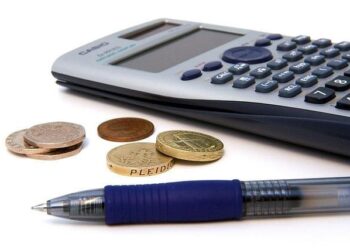We often think of life-saving actions as grand gestures — pulling someone from a burning car or performing CPR during an emergency. But sometimes, the habits that truly make a difference aren’t dramatic at all. They’re quiet, consistent, and easy to overlook. Yet over time, they build a foundation of awareness, preparation, and compassion that can change — or even save — someone’s life.
Whether it’s knowing how to respond in a crisis or being part of something bigger, these habits take only a little effort but can have lasting impact. One such habit, as simple as making a donation, can directly support life-saving services that many Australians rely on during critical moments.
Here are several small habits worth building — ones that might just save a life someday, including your own or someone else’s.
Learn Basic First Aid
It sounds obvious, but most people still don’t know how to treat burns, respond to choking, or handle severe bleeding. Enrolling in a basic first aid course can take just a few hours, yet the knowledge could prove vital in an emergency.
Tip: Look for local community programs or online-certified options. Refresh your training every couple of years to stay current with best practices.
Always Check In — Even When It’s Inconvenient
Mental health emergencies aren’t always visible. People often suffer quietly, and one check-in message or phone call might be the difference between isolation and connection. Make it a habit to reach out to friends, family members, or neighbours regularly — especially those who may be going through a rough time.
Why it matters: Small gestures of care can interrupt spirals of loneliness or anxiety. It costs you nothing and could mean everything to someone else.
Pay Attention to Public Safety Messages
Whether it’s beach signage, bushfire warnings, or road alerts, most of us tend to tune out public safety information — until we wish we hadn’t. Getting into the habit of taking these messages seriously, even when they seem minor, helps keep you and others safe.
Everyday example: If the surf lifesaving flag moves or a “Dangerous Current” sign goes up while you’re on the beach, don’t brush it off. Respect it, and encourage others to do the same.
Know Where Safety Equipment Is
In your workplace, local café, or community centre — do you know where the nearest fire extinguisher or defibrillator is located? Simply being aware of your surroundings can reduce your response time dramatically in a real emergency.
Next time you’re in a new building, take a quick look around. You don’t need to memorise a full floor plan — just know the basics: exits, emergency tools, and muster points.
Use Your Platform for Good
Most people underestimate the reach they have. Even if you don’t consider yourself “influential,” a single social post or conversation can raise awareness about causes that matter — from organ donation and mental health to blood drives or surf safety.
Use your voice to spotlight services that save lives. You never know who might be inspired to take action because of your words.
Build a Giving Habit
When we think of donations, it’s easy to assume they’re just about money. But regular giving — whether it’s time, money, or resources — supports the people and organisations that protect lives every day. Even small, monthly contributions can help ensure these services continue operating when they’re needed most.

Consider setting up a recurring donation to an emergency response organisation, medical charity, or community rescue service. You may never meet the person whose life you helped save, but the impact is real.
Practise Situational Awareness
Being alert doesn’t mean being anxious. It simply means paying attention. Whether you’re walking through a car park at night, waiting on a train platform, or sitting in a crowded venue — practice noticing exits, people’s behaviour, and your surroundings. It helps you stay prepared and can help others too.
Practical step: If you’re with children or elderly relatives, make a quick note of who’s responsible for what in an emergency. These small steps can reduce panic and increase response time if something does go wrong.
Share What You Know
Once you’ve built some of these habits, pass them on. Talk to your kids about what to do in an emergency. Show your colleagues where the first aid kit is. Organise a safety workshop in your community or workplace. Information is only powerful when it’s shared.
Most life-saving habits don’t begin with emergencies. They begin with awareness, preparation, and the willingness to act when it matters. By building even a few of these small routines into your life, you create a ripple effect — one that can help protect not just your own wellbeing, but that of your community. It’s not about being a hero. It’s about being someone who’s ready to help when it counts.











